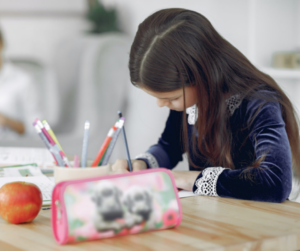
How to empower your child to take control over their own learning
Education is a huge part of Hong Kong’s national identity. The schools, teachers, parents, and everyone in-between spend hundreds of hours deliberating and deciding on the best approach to learning, how to maximise the efficiency of teaching, the methods most effective when educating, and how to incorporate the needs of a wide variety of pupils. Whilst these deliberations are imperative to ensuring the schooling systems remain some of the best in the world, the role of the child can often be overlooked.
With the sheer magnitude of variables to consider when it comes to education, it’s fair to say there will never be a perfect one size fits all approach. It is therefore important to encourage and guide your children to take responsibility and purposefully find enjoyment in their own learning. Empowerment provides a child with the tools necessary to embrace the learning process with more independence, giving them the confidence to attempt work without relying too heavily on outside influences, and allowing them to remain positive throughout the process, despite not always achieving the desired result. Listed below are different ways you can help empower your child on their educational journey.
Communication
The first step to empowering your child is through the avenue of effective communication. As parents and educators, we play a crucial role in what our children end up believing about themselves and what they feel they are capable of achieving. A child’s self-image is a direct result of the kind of reinforcement he or she receives on a daily basis. So, we have to be able to actively listen to our children in order to further understand what they’re meaning when they say they don’t understand a concept or feel negatively about their schooling. Establishing effective lines of communication with your child allows them to feel comfort in knowing you are aware of their concerns and are willing to help guide them to a solution. This process of encouraging discussion and cultivating an openness will also ensure you are equipped with the necessary information to help support them and guide them through the different opportunities and challenges they face.
Create a culture of learning outside of school
Many children solely associate learning with their school. This can lead to feelings of frustration when they encounter unfamiliar and challenging concepts, as they may feel they are unable to find a solution outside of the classroom. This frustration from the seeming lack of available resources can result in the development of a defeatist attitude, where it becomes easy for a student to simply give up. By creating a culture of learning outside of school, through independent study or discussions with family members or tutors, children can remove their dependence on their classroom teacher and becoming comfortable asking for assistance from others, and eventually even trying to find the answers on their own.
Help your child manage their own learning
Once a culture of learning has been established outside the classroom, it will allow you as a parent to devise a sliding scale structure of support. The scale should start off as adopting a hands-on approach, monitoring and supporting your child in helping them organise their learning, discussing solutions, learning how to revise, planning different work timetables, and generally assisting them in any way you can. After a routine has been established, and your child has become more comfortable learning outside of the classroom, you should slowly begin to let go of the control, allow them to devise personal learning objectives without your direct guidance, discuss how they plan to achieve their goals, support them in the implementation of their learning strategy, and discuss solutions or different approaches to a problem if the original strategy didn’t work as planned.
Stay positive about education
For parents and children alike, the past year has been incredibly taxing, especially with the stability of our educational routines being extremely disrupted. With this in mind, it is fair to say many people have been left feeling quite negative towards educational institutions, and increasingly frustrated with the ever-changing timetables and scheduling. However, now more than ever, it is important to remain positive. The thoughts and feelings you express around your children have a significant impact on their own personal opinions. If they see and hear you feeling optimistic about returning to school, and you magnify all the positive aspects of returning to classroom based learning, such as seeing friends, joining in on group discussions, and returning to some form of ‘normality’, your children will also embrace a similar attitude towards their learning and educational expectations.
© 2025 Telos Education
